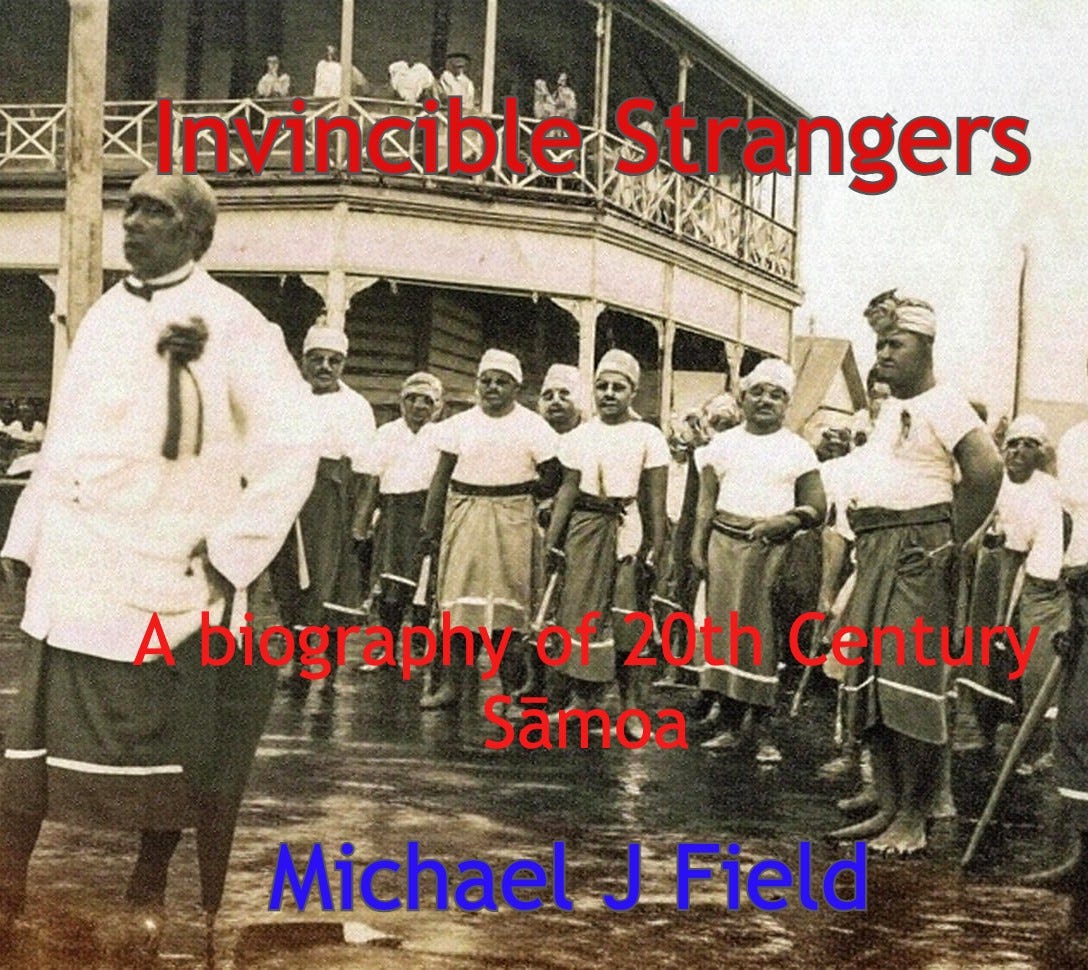Good man, but he is too tricky
Invincible Strangers 16 Chapter 4.1
Good man, but he is too tricky
Solf may have subdued the ali’i, but not tulāfale.
Lauaki Namulau’ulu Mamoe, who had been with Malietoa Laupepa and had resisted the Anglo-Americans, was not persuaded that German rule was necessary.
‘A tall, well-built man, with a fine voice and a commanding presence,’ he was from Sāfotulāfai, power centre of the Fa’asāleleaga district, home to the Malietoa title. American historian Henry Adams stayed with Lauaki in 1890 and wrote that ‘Sāmoans have an entirely intellectual world of their own, and never admit outsiders into it… I never imagined a race so docile and gentle, yet so obstinately secret.’ Solf believed Lauaki was ‘a grand, eloquent speaker’ with many followers. Lauaki on Solf: ‘Oh, the governor is a very good man, but he is too tricky.’
When copra prices fell in 1904, Lauaki asked Solf to provide a subsidy. Solf said no. Lauaki and fellow tulāfale, Moefa’auo, created a copra company in opposition to the German monopoly Deutsche Handels und Plantagen Gesellschaft – usually known as the Long Handled Firm or DH&PG (which had replaced the first company Godeffroy und Sohn that went broke). Lauaki proclaimed they were Mālō, the government, and they imposed a levy on Sāmoan growers. Solf outlawed it. Tulāfale of Savai’i regarded themselves as the rulers of the island, calling themselves Pule or power (the equivalent grouping on ‘Upolu was Tumua). The response came in the new O le Savali government paper which published a Solf speech claiming prior to German rule ‘there existed in Sāmoa two warring factions, each hating the other fiercely.’ Tumua ma Pule used crooked methods: ‘Let it be clearly understood that there is only one government and that is… called the Imperial Government.’ Lauati and Moefa’auo were to be banished, Moefaauo to Neupommern (now New Britain in Papua New Guinea). Lauati’s fate was to be decided: ‘In no way can the Tumua and Pule find a place in the Government of Sāmoa.’ Lauaki responded with a group he called Mau a Pule, which could be translated as ‘Savai’i’s resistance’. It attracted attention in eastern Savai’i, but less so around the rest of Sāmoa which had started to get used to the peace and stability that had followed German rule. Solf went to Sāfotulāfai. Lauaki tried to discomfort Solf with his oratorical skills, as historian and later constitutional adviser Jim Davidson wrote: ‘He told the story of an early Tu’i Tonga who had determined that his brother should die because he had had sexual relations with the former’s concubine. He identified Solf with the Tu’i Tonga and himself with the brother. He had, he said, ‘committed adultery’ with the law; and Solf had determined to destroy him.’ Lauaki drew a gospel story into debate, one about a short man not tall enough to be able to see Jesus but hoped he might catch a glimpse of his cloak: ‘I am like that man, and you are the same as Christ … Surely you have enough ability to administer the affairs of a weak little country like Sāmoa … And I now have to say: “Please do not accept the homage of a low, common people like the Sāmoans”.’
Keep reading with a 7-day free trial
Subscribe to Michael Field's South Pacific Tides to keep reading this post and get 7 days of free access to the full post archives.


